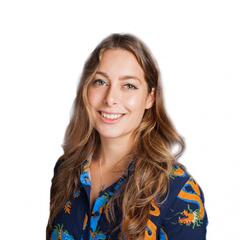Innovative ways Dutch companies are helping the environment
The state of the environment is a topic which often crops up in the news. In the Netherlands, there are hundreds of initiatives trying to address problems such as food waste or plastic pollution. We’ve picked out a few companies which you might find interesting.
Boats and furniture from plastic fishing - Plastic Whale
Plastic Whale was founded in Amsterdam in 2011 by Marius Smit. It is the first professional plastic fishing company in the world. The company’s first challenge was to build a boat. This challenge was met and Plastic Whale made their first design boat from more than 10.000 bottles fished from the canals of Amsterdam.
That was only the start; Plastic Whale now has 10 boats made from plastic waste. Looking at their figures up until December 31, 2017, 11.008 fishermen have fished 105.105 plastic bottles out of the canals in Amsterdam and the harbour in Rotterdam.
Plastic Whale’s mission is to make the world’s waters free of plastic and create things of value from the waste. They ultimately want to go out of business, as this would mean that there would no longer be any plastic in the water to fish out. The company doesn’t just get the job done alone, they organise free events for the public and team building events for businesses to come and fish for plastic.
Plastic Whale partnered with Vepa, and in February 2018, they launched an exciting line of office furniture: Plastic Whale Circular Furniture. This furniture range is inspired by the forms and lines of the whale and is made from plastic taken out of the canals of Amsterdam.
Food rescuers - Instock
A massive 1.3 billion tonnes of food is wasted each year, that’s a third of all food production. Instock saw the amount of food wasted each day and wanted to turn the surplus into delicious meals.
The company does this by picking up unsold produce from local Albert Heijn supermarkets and other producers, which they then turn into creative dishes at their three restaurants in Amsterdam, Utrecht and The Hague, along with their food truck.
In addition to their restaurants, they also provide catering, make their own beers from rescued potatoes and bread, and make their own granola. And if that’s not enough, they have created their own cookbook. Instock has rescued 399.966 kilos of food already and that number is continuously increasing.
A wall of plants - Wilde Wand
Arne Driessen and Michelle Stede founded the Wilde Wand, designed for offices. The Wilde Wand is a mobile room divider with a circular Dutch design full of plants, which purify the air.
In September of 2017, the pilot phase of the Wilde Wand began, with companies such as the municipality of Leiden and Knab taking part. The feedback the company received about the product during this period was taken into consideration when it came to creating the final design. At the start of 2018, the production of the Wilde Wand began.
Plants have a positive effect on people, a fact which is receiving more and more attention. They reduce stress and headaches at work and stimulate creativity and productivity. It is the Wilde Wand team’s mission to allow everyone to experience the benefits that plants have.
The wall of plants is a win-win for offices and the environment- cleaner air and higher work productivity. It has six sections, can house up to 72 plants and has an integrated watering system that uses gravity to function. Because it is built up in sections, you can also arrange it to house a whiteboard, cupboard or notice board, amongst other things.
Soap made from residual waste – SOOP
BeeBlue is an entrepreneurial group making products and developing services that have a positive impact on society, nature and the economy. The amount of waste which comes from coffee and orange juice is enormous worldwide, and in the Netherlands, this totals 134 million kilos of coffee grounds and 250 million kilos of orange peel each year.
But why throw these away when you could make a product out of them? That is exactly what BeeBlue did. They decided to make a natural soap which not only smells good and works well in cleaning and exfoliating your skin, but is also free from chemicals and plastics often used by other soap varieties.
Currently, a bar, liquid and cleaning product variety of SOOP are being developed. How’s that for circular economy!
Herb butter made from “weeds” - Onkruidenboter van de koe
Van de Koe was started by Roel Kramer and Martijn Postma. Together they create onkruidenboter (butter with weeds), which they launched last year, using only organic butter from farmers in the Amstelland district. This butter not only tastes good, it also helps the growth of the meadow bird population, such as the black-tailed godwit.
The farmers they work with participate in the conservation of meadow birds, ensuring that the pastures are full of herbs. Van de Koe adds some of the “weeds” that they have handpicked from the Amstelland pastures to the organic butter, thus creating onkruidenboter. The “weeds” include wild garlic, sorrel and ground-ivy.
Today, they also sell three other types of butters, namely: sage and lemon butter, coriander, lime and chilli butter and black garlic butter. These butters don’t use “weeds” from the Amstelland pastures, but they do use butter made by meadow bird-friendly farmers.



COMMENTS
Leave a comment